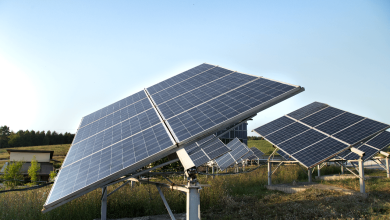The Earth Might Not Be Safe for People Anymore: A Report

A recent scientific assessment sounds a poignant alarm about the precarious equilibrium within Earth’s ecosystems. Researchers caution that human actions, propelled by pollution and the relentless depletion of the natural environment, have propelled the planet beyond the safe operational thresholds for humanity. This comprehensive examination of “planetary boundaries” unveils a stark reality with profound implications.
The notion of planetary boundaries delineates the thresholds within which crucial global systems must function to sustain a thriving planet. These boundaries encompass pivotal elements such as climate equilibrium, biodiversity, and water resources. Trespassing these thresholds can yield catastrophic repercussions for the delicate ecological equilibrium of our planet.
What’s Happening to the Earth?
The assessment paints a concerning picture. Six out of nine planetary boundaries have been violated, signifying a significant departure from the stable conditions that characterized the Holocene, a period spanning the past 10,000 years. This era provided the backdrop for the rise of modern civilization, and its disruption poses a grave challenge to the sustainability of human society.
Perhaps the most worrying revelation is the precarious state of the four biological boundaries, which are essential for maintaining the planet’s resilience. These boundaries are now either at or dangerously close to the highest risk levels. The loss of trees, which play a vital role in absorbing carbon dioxide, further exacerbates the challenge of mitigating climate change.
Implications for Climate Goals
The deteriorating planetary resilience poses a significant obstacle to achieving critical climate goals. There is a growing apprehension that efforts to limit global warming to the ambitious 1.5°C target may falter, pushing the world closer to irreversible environmental tipping points.
The grim assessment stresses the need for quick and determined action. The gradual elimination of fossil fuel combustion, the adoption of sustainable land management techniques, and the reduction of synthetic pollutants are all immediate initiatives. These actions are thought to be crucial for tackling the ongoing environmental catastrophe and restoring Earth’s resilience.
A Serious Warning for Humans About the Earth
Professor Simon Lewis, not involved in the study but specializing in environmental science, characterizes the findings as a “strikingly gloomy update.” He emphasizes the urgency of fundamental changes in how humanity interacts with the environment, highlighting the critical role of equitable and sustainable policies.
The concept of planetary boundaries simplifies challenging ecological challenges while also serving as a sobering reminder of the critical need for global environmental care. The research emphasizes that the future state of the world’s environmental circumstances is unpredictable because Earth’s systems have been thrown out of balance.
Also Read : The “Forever” Glaciers of America is Melting: Here’s Why
As experts continue to warn about the dangers of Earth’s life support systems, the globe must make a critical decision. It must choose between adopting quick and sustained action to restore planetary boundaries and risking irreversible harm to the planet’s ecosystem, human society, and future. Time is running out, and the only way forward is to work together to protect our own home.



